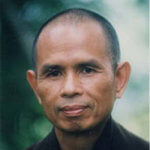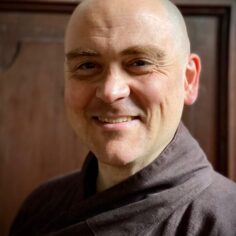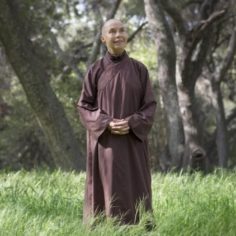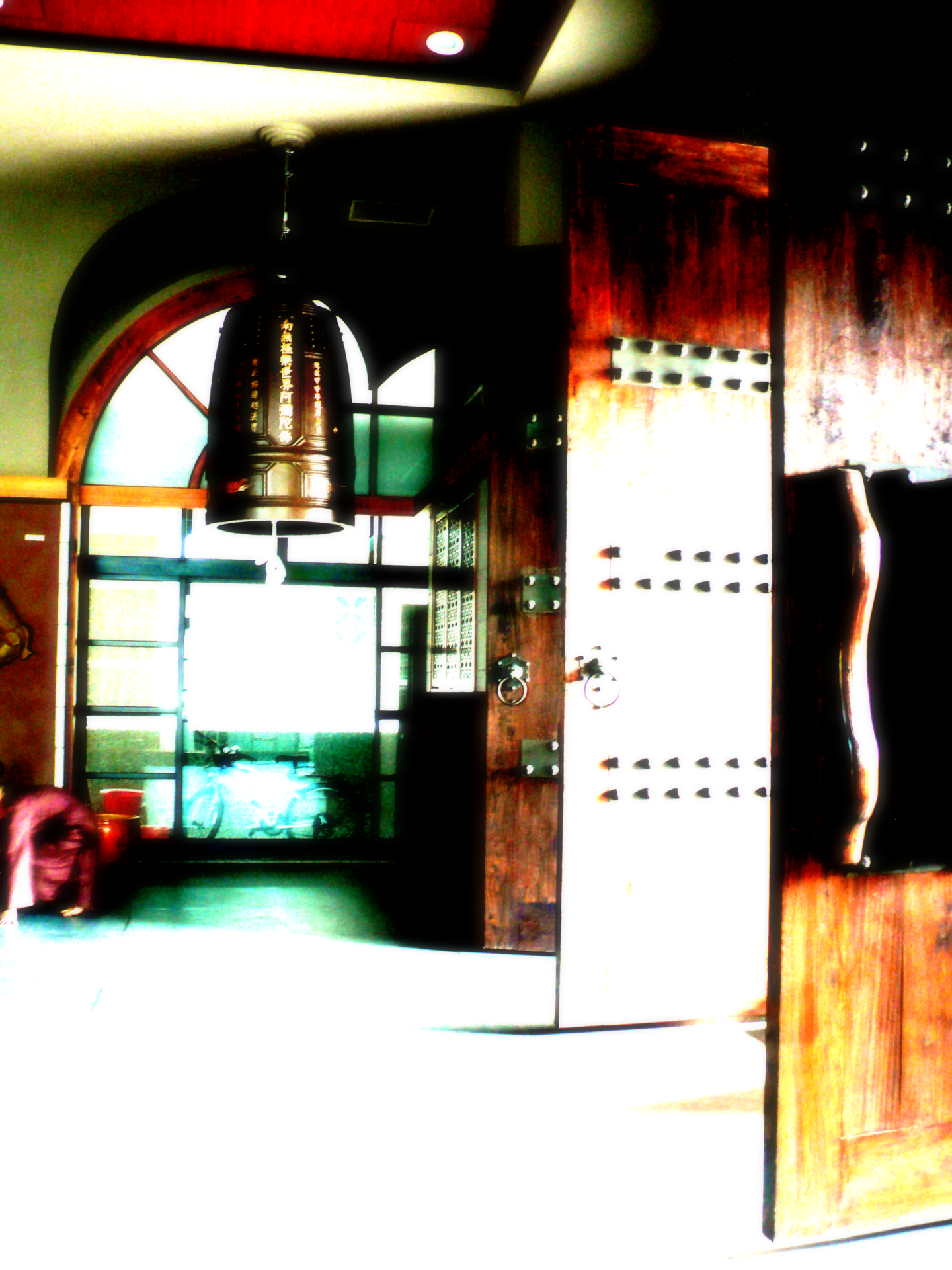Question and Answer Session with Thich Nhat Hanh and Monastic Brothers and Sisters
By Thich Nhat Hanh, Brother Pháp Linh, Sister Jina van Hengel in October 2011
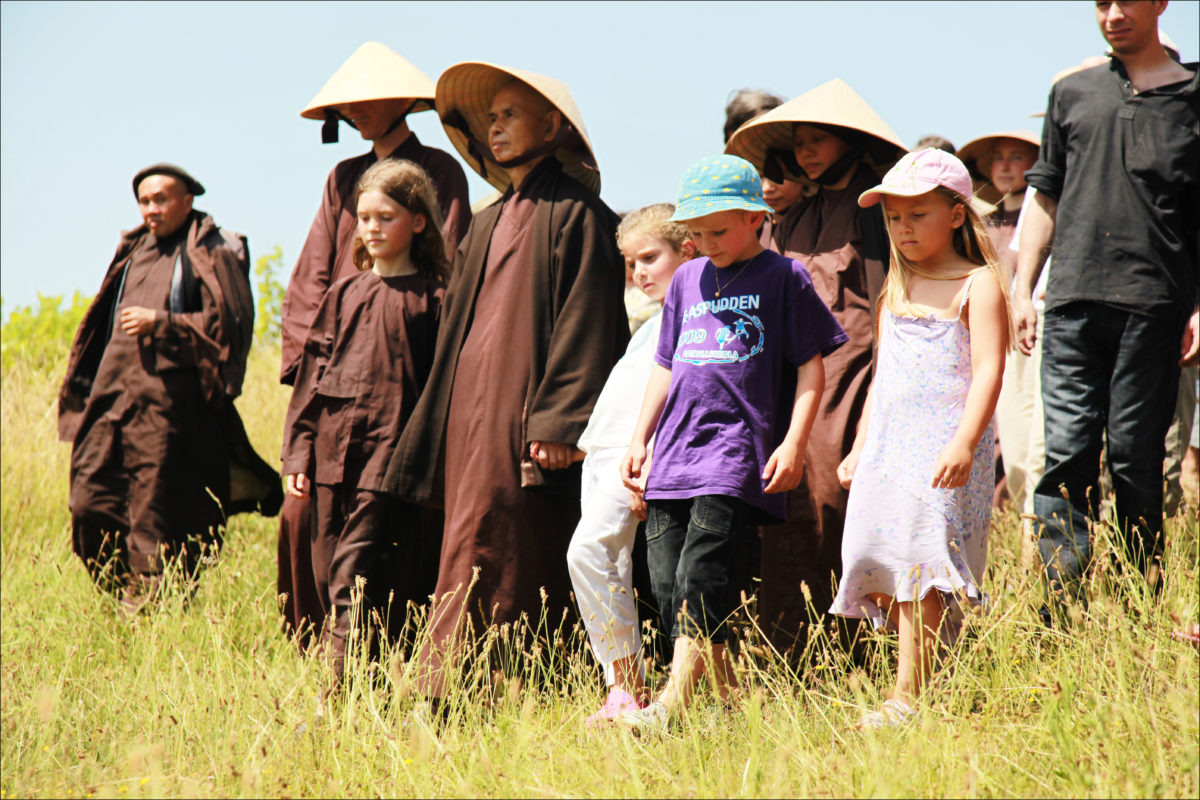
European Institute of Applied Buddhism
Waldbrol, Germany
May 20, 2011
Thich Nhat Hanh: Today we have a session of questions and answers.
Question and Answer Session with Thich Nhat Hanh and Monastic Brothers and Sisters
By Thich Nhat Hanh, Brother Pháp Linh, Sister Jina van Hengel in October 2011

European Institute of Applied Buddhism
Waldbrol, Germany
May 20, 2011
Thich Nhat Hanh: Today we have a session of questions and answers. We know that a good question can benefit many people. So please ask a question from your heart, a question that has to do with our practice, our suffering, our happiness. We know that a good question does not have to be very long. Young adults are encouraged to come and ask questions.
Retreatant: Dear Thay, dear Sangha, I’ve been in a youth Sangha for almost two years. There are many Sanghas of young people growing in Holland and Germany, and it’s great to feel the brotherhood and sisterhood, and also the youth retreats that we have here in the EIAB [European Institute of Applied Buddhism]. I would also like to thank the EIAB for their support and their flexibility and trust in the wake-up group. As young people, we have this dream to create wake-up, living communities, but I wonder, how do we know that we have enough practice to make this really happen? Do we need to have Dharma teachers as a foundation? Do we need to have laypeople finish the five-year [monastic] program to be the foundation? How do we create successful wake-up, living communities?
Thay: I remember one time we had a retreat in Montreal, Canada, and after the first session of walking meditation, one lady came up and said, “Thay, walking meditation is so wonderful, I enjoy it so much! May I share this practice of walking meditation with other people?” And I said, “Yes, you can share the teaching and the practice if you feel happy with the practice.” So if a group of young people are able to live happily and in harmony, connecting with the practice, they can begin to share the practice with other young people, even if they haven’t spent a lot of time learning and practicing Buddhism.
Maybe Brother Phap Linh can say a few words on this, on how to expand our movement and help more young people.
Brother Phap Linh: I know that the wake-up movement is very strong; we already feel like brothers and sisters on the path. Two years ago, Thay told us we need to have a wake-up tour of Europe, to spend ten days in each country. At the time we thought that was impossible, but already this year we’ve been able to do it in England and in Italy. We went to six different universities in the United Kingdom in March, a group of seven brothers and sisters and five young laypeople. Next year we want to make that dream come true by planning events in Holland, Germany, and Belgium.
Thay has encouraged us to invite people to practice as monastics for five years. Now we will also have a two-year master’s program, for a Master of Applied Buddhism. So there are many ways that young people can come and train to become solid practitioners and to have the experience of serving others and sharing the practice.
The dream of living together as young people, sharing the practice, is already coming true. There’s a wake-up house in Austin, Texas, and the core of their practice is agreeing to practice the Five Mindfulness Trainings in the house, and that way they maintain harmony. So I think we already know the way. We just need to continue.
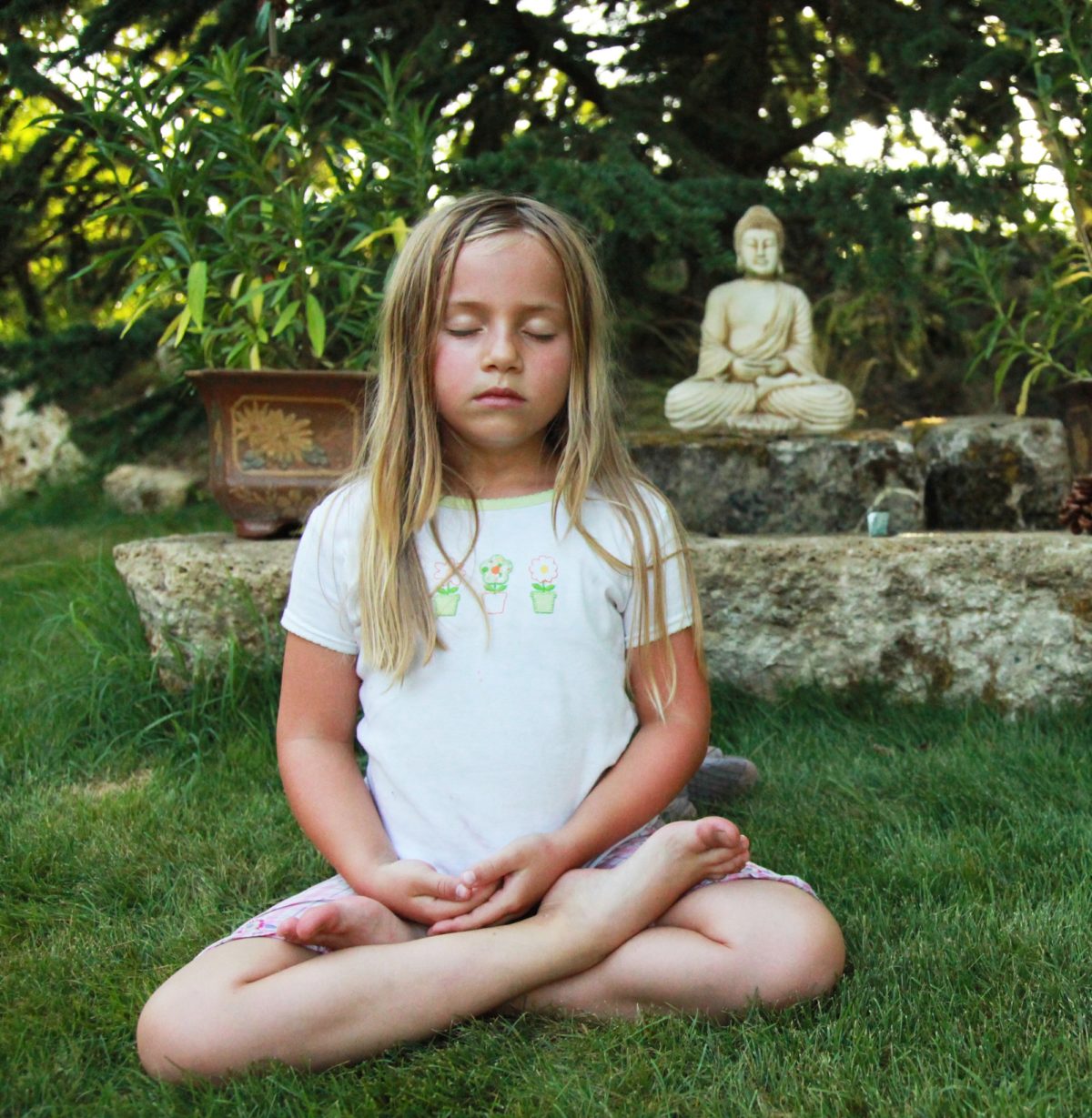
Retreatant: Dear Thay, I would like to ask how to create a peaceful and friendly relationship with a person who hates you and wants you out of their life.
Thay: There are at least two things to do. The first thing is to become lovable, pleasant. Sooner or later the other person will notice that you have become more pleasant to be with. The second thing is that you may know people who are friends with the other person, who can help the other person notice that you are a lovely person, are pleasant to be with, so that he will adjust his first impression and recognize the reality that is now. So the first thing is, a flower should be a true flower. The second thing is that someone should remind us that the flower is there.
Retreatant: I have a habit to be offensive against other people in my thoughts. I want to change that, but I don’t know how. For example, when I walk down the street and see people doing things, I think to myself, “Oh, what an idiot!” Things like that.
Thay: When you see something, it might be only one aspect of that thing, the aspect that does not please you. Next time you see someone or something, do not allow just one aspect of it to seize you, but allow yourself to see the other aspects as well.
In the chanting book there is a sutra talk by Shariputra [Discourse on the Five Ways of Putting an End to Anger]. He said that when you have anger, you have to look deeply in order to transform your anger. With a person whose way of doing things may not please you, but whose way of speaking can be very pleasant, you should pay attention more to his way of speaking, not to his way of doing. That way you can transform your anger. Even if you notice that his behavior is not pleasant and his speech is not pleasant, maybe his way of thinking is very pleasant. You can see the goodness in his heart, so you accept what is not so good in his way of speaking or acting.
Shariputra went on to say that even if his behavior is not pleasant, if his speech is not pleasant, and if his thinking is not pleasant, you can still feel compassion and transform your anger. You look deeply to understand that such a bad person must be someone who suffers very much, and you might be able to help him suffer less. If you think like that, you will accept him as he is, and the anger in you will be transformed. This sutra is very beautiful. I recommend that you read it.
Shariputra used the image of water to illustrate his teaching. First, he described a lake covered with straw and algae. If a person who is very thirsty and hot takes off his clothes and gets into the water using his arm to remove what is floating on the surface, he can enjoy the cool water. If he can see underneath the straw and algae, the water is deep and fresh.
Shariputra gave a second image of a person who is traveling and is so thirsty he is about to die, but he knows there is some water left in the footprint of a buffalo. He knows that it is a very small quantity of water, and if he uses his hands to gather the water, it might become muddy. So he kneels down and drinks the water directly and is able to survive. It means that even if the situation is difficult, if the person is not very pleasant in his way of speaking and acting, you can recognize the goodness in him and try to enjoy that. That is one way to transform your anger, your disappointment. The sutra is about five ways to put down your anger and is available in the Plum Village chanting book. If you read the sutra, next time you go out on the street, you will look at them and smile and accept them as they are. Thank you. Good question.
Retreatant: Dear Thay, yesterday you talked about nirvana and states of being and non-being, the here and now, and the true self. Lately I feel that my true self is like a drop that has been taken out of the collective consciousness, something like a cloud. And I feel, as I’m aging, that this drop has been separated, and I have this longing to reunite with the ocean. I would like to know whether you notice a longing to be reunited to the true self, and how I can live in the here and now in the face of this longing.
Thay: If the wave remembers that she is at the same time water, there is no need for the wave to go and search for water. You have the impression that you are separated from your true self, from your true nature. That is only a feeling, a wrong perception. You feel that you are away from the ultimate dimension; you do not have a connection with God. That is also a feeling born from wrong perception. We know that the ultimate dimension and the historical dimension are not two separate dimensions, they are just one. So if we say that the flower belongs to the Kingdom of God, then if we get in touch deeply enough with the flower, we get in touch with the Kingdom of God. The Kingdom of God is not something outside the flower. The feeling of separation is born from the fact that you do not live your life deeply enough in each moment. If we learn how to live in mindfulness and concentration, then the Kingdom of God, the ultimate dimension, is always available to us.
So we need to train ourselves to live more deeply. If we have enough mindfulness and concentration, we can touch the ultimate with every breath, every step. Nirvana, or the Kingdom of God, can be experienced in every moment of our daily life. In fact, you can touch nirvana with your feet. You can be in the presence of God twenty-four hours a day. How? Learn to breathe mindfully, walk mindfully, eat mindfully, drive mindfully.
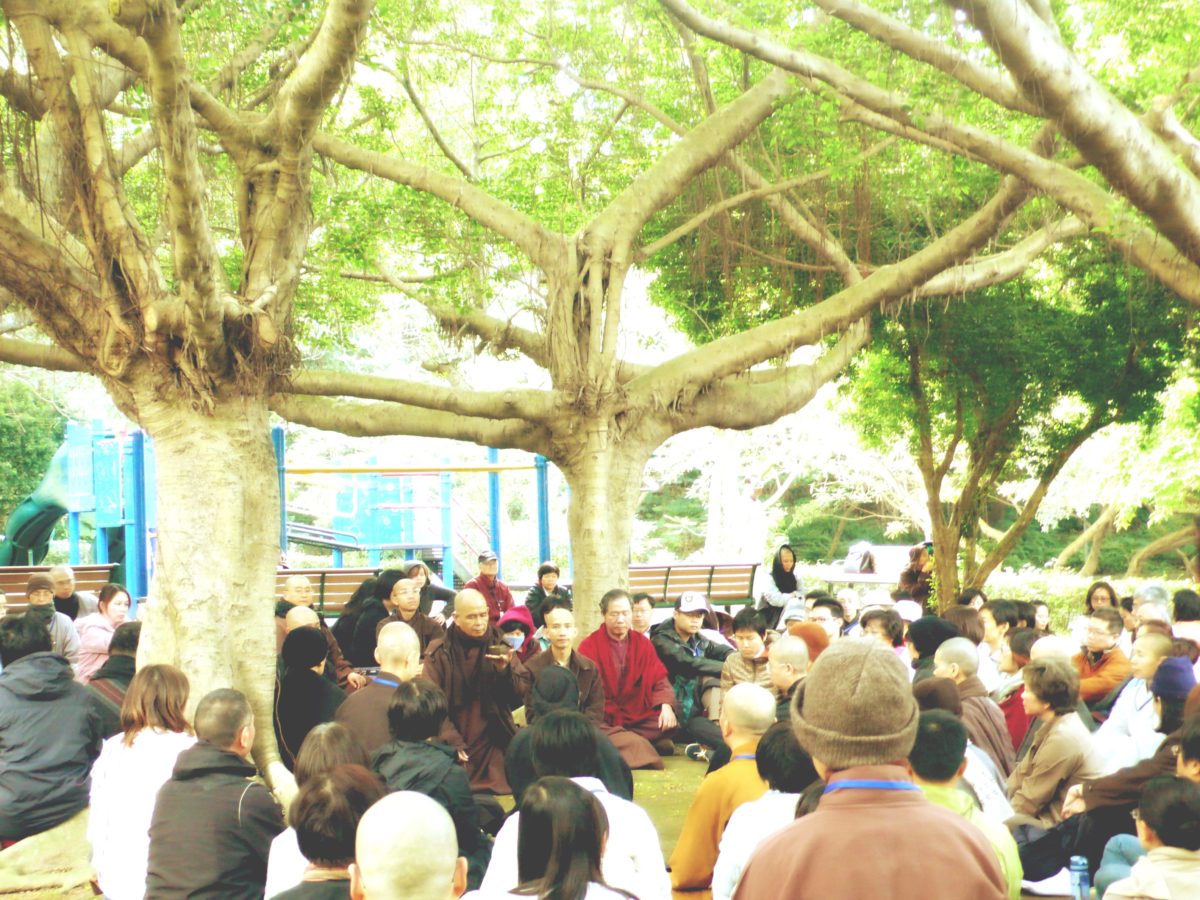
A written question: Dear Thay, following the Five Mindfulness Trainings, I try not to kill. So for the past two years when I saw a few little bugs in the kitchen, I left them in peace. But this summer there were so many that I began to kill them, always trying to keep a peaceful mind and friendliness, wishing a good rebirth in the next life. I remembered you saying that when we followed the North Star, it didn’t mean that we had to reach it. But to perform the act of killing again and again, doesn’t this create karmic imprints in my stream of consciousness? Or do I have to decide not to kill at all in spite of some disadvantages? Thank you.
Sister Jina: We say the Five Mindfulness Trainings are like the North Star. They give us a direction in life, the direction of non- violence. And we do our best. One of the main things is to keep our mind open, not to think we have to do it this way or that way. Every time I am confronted with a situation, I look again and say, “What is the wisest thing to do?” If you do that, then you may learn to focus on prevention. In this case, we can see what we do that brings the little beings into our kitchen. Then we can determine what we can do to prevent them from coming in. This goes for all aspects of our daily life. If we did kill the insects, then we have to know we may not choose to do the same thing next time. In the meantime, practice being mindful in your daily life. Then you will have more concentration and more insight about how to protect life and how to go in the direction of nonviolence.
If we start to feel guilty, then we may get to a state where we cannot do anything anymore because guilt overtakes us. It is better to look and to say, “I regret that I did this. What can I do now?” Then we have learned something from the situation, and this will benefit many people and many beings.
Thay: When we went to Hong Kong, we had to use a mosquito net in order to sleep during the night because there were a lot of mosquitoes. It is impossible for you to kill all the mosquitoes! So using a mosquito net is a good prevention technique.
In Plum Village our brothers and sisters used to pick up the insects in the garden and release them outside instead of using pesticides. If we allowed the insects to share our vegetables, there would not be enough vegetables left for us. So at night we went to the vegetable garden and we picked up all these small insects and released them far away. Our neighbors were very surprised to see us and wanted to know what we were doing in the dark!
But that does not mean that we have the best way. We are still learning better ways to protect life. Thank you for asking the question so that we can continue our reflection on that.
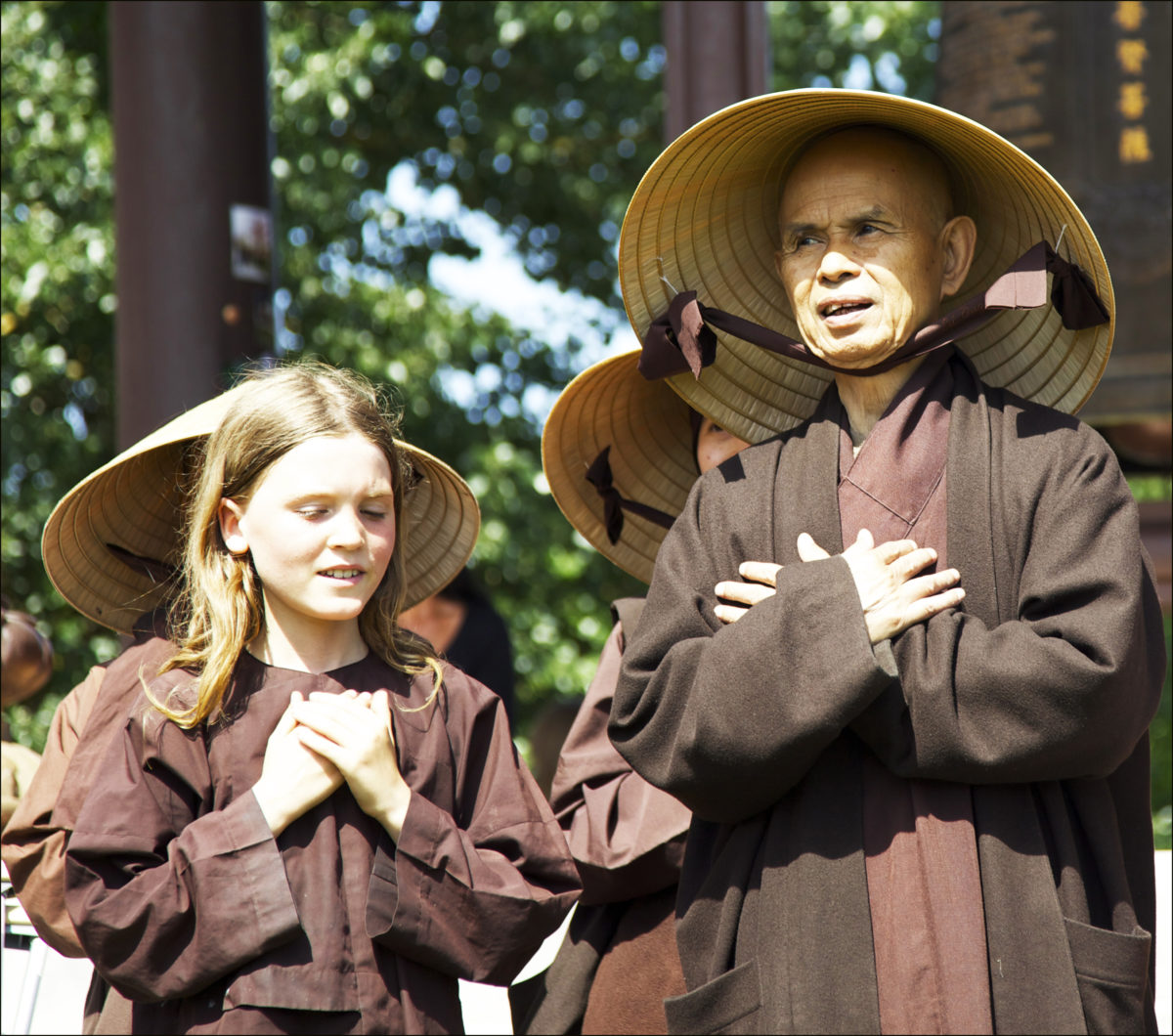
Retreatant: Dear Thay, dear brothers and sisters, I would like to ask a question regarding my superiority complex. All my life when I’ve met people, I’ve automatically judged them and found something in them that made me feel superior. I used to go to a school where at the end of each year we had the custom to invite the best of each year onto a stage before the entire school and honor them with a golden plaque. There is still this voice in me that would really like to share that I, too, once received one of those golden plaques. But I have also discovered how in this way I create a distance between myself and other people.
I have discovered that one reason for my feeling of superiority is that I’ve tried to protect myself from a feeling of inferiority. Because of this discovery, things are changing a little bit. However, this feeling of having to create a distance between me and other people is still an obstacle in my way. I would like to ask you for more advice on how to manage this better. Thank you.
Thay: This morning when I touched the earth with the Sangha, I saw all the non-me elements coming together and touching the earth. I did not see me at all, only the non-me elements. That created a lot of space inside. Because you believe in a self, you compare that self with other selves. Out of it come the superiority complex, the inferiority complex, the equality complex. If you touch the truth of non-self in you, you are free.
When I was ordained, I was told how to bow to the Buddha. Bowing to the Buddha because you have the impression that the Buddha is perfect and you are not perfect is not the best way. As a young novice I was told that before you bow, you have to look deeply into yourself and into the Buddha to whom you bow. There is a verse you can recite while breathing in and out, before you bow. The verse is: “Dear Buddha, I know I have no self and you have no self. That is why I can see me in you and you in me.”
The one who bows and the one who is bowed to are not two separate entities. So when you remove the barrier, the distinction between the one who bows and the one who is bowed to, then the experience of the bow can be very deep. Although you conceive of the Buddha as the perfect one, your teacher, the fully enlightened one, you have no complex whatsoever.
Then there is the insight that our ancestors have transmitted to us many wonderful qualities. If we have some talent, there’s no “our own” talent. That is something that has been transmitted to you by your father or your grandfather or grandmother. You should be proud of it. If another person does not seem to have that talent, that doesn’t mean that talent is not in him or her. That person has been in an environment that has not helped that talent to manifest. You are luckier, because you have been in an environment where that talent had a chance to manifest. If you can see that, you won’t have any superiority complex over him.
Also, our ancestors have transmitted to us negative things, habit energies, sufferings. If we happen to be in a good environment where there are the Buddha, the Dharma, and the Sangha, we will be able to transform them more quickly than another person can. I know that the negative things in me may have been transmitted to me by my ancestors, and I know that with the Dharma, with the Sangha, I may be able to help transform them. Not only for myself but for my ancestors at the same time.
So the environment is very important. We should pay attention to how to create a good environment for us and for our children so that the good things can come out easily and the negative things can be transformed more easily.
Retreatant: Dear Thay, dear Sangha, twelve years ago I had a crisis, and when I was in most need of the help of my friends, I was let down and even attacked by them. I became very ill and lost all my trust in other people. I have tried to look into the causes of all that happened, and I have tried to forgive myself and others. Now I am on a new path, trying to open myself up and to trust other people again. Much has changed for the better. But my old wound is being opened again by some recent interactions with people, and now I feel that people cannot be counted upon and I need to protect myself. So, dear Thay, how can I live in an open and trusting way, even with people who are not very mindful, and how can I at the same time protect myself?
Thay: We speak of protection with mindfulness. When you do things mindfully, you are in a safer situation. When you walk mindfully, you don’t risk falling down. When you speak mindfully, you know what you are saying, and you know that what you say is going to create danger or safety. Most of the time the dangers come from ourselves, and not from others. We should learn to think mindfully, because our thoughts can draw danger to ourselves. When we do things, when we say things, when we think from a basis of anger and fear, we bring danger to ourselves and to the people around us. That is why when we notice that fear or anger is coming up, we should not say anything, we should not do anything. We should only go back to our mindful breathing and mindful walking in order to calm down these emotions. Learning to act mindfully, to speak mindfully, and to think mindfully is the best way to protect ourselves, and we can help protect the people around us at the same time.
If someone asks you to do something, to say something, you say, “Dear friend, I’m not in a position to do or say anything, because there is anger or fear in me. I risk making myself suffer more, and I risk making you suffer more.” If we can practice that, we are in a safer situation, and we can help another person to feel safer at the same time. And we can suggest that the other person, suffering from anger, do the same.
The second thing is that you are in a situation to help people in that negative environment, who have become the victims of such behavior. Mindfulness gives you that insight. These people did not have the intention to make you suffer, but they don’t know how to handle the suffering in them. That is why they do things and say things that make themselves suffer, and the people around them become victims. With that insight you are free and you are in the situation to help, because you have compassion in your heart.
Dear friends, it’s time for us to do walking meditation. Enjoy the Kingdom of God. Thank you.
EDITED BY BARBARA CASEY
To request permission to reprint this article, either online or in print, contact the Mindfulness Bell at editor@mindfulnessbell.org.
